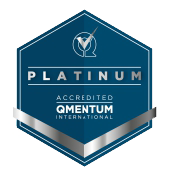Use of project-based learning in remote medical education in pandemic times
DOI:
https://doi.org/10.5327/prmj.2021.011Keywords:
education medical, pandemics, health promotion, mental healthAbstract
Purpose: To report the experience of developing materials for carrying out health education activities remotely, which related to mental health in times of pandemic, linked to the discipline Community Interaction IV, of the medical course of the Regional University of Blumenau. Methods: From the situational diagnosis, in a brainstorming exercise, using the methodology of Problem Based Learning, 38 students divided into three groups, with their respective teachers, chose a target audience to work on the theme of mental health and shared possibilities for addressing the theme. Results: As final products, the groups produced an educational folder addressing the mental health of the LGBTQIA+ community, a profile on the social network Instagram, named "Saudavelmente" and the magazine “IC in Focus”, addressing the mental health of the teachers. Conclusions: Using active teaching methodologies, the activity made it possible to bring the students closer to a real context of mental suffering, which started from an observation of the reality identified and prioritized by the students themselves.
Downloads
References
Pereira MD, Oliveira LC, Costa CFT, Bezerra CMO, Pereira MD, Santos CKA, et al. A pandemia de COVID-19, isolamento social, consequências na saúde mental e estratégias de enfrentamento: uma revisão integrativa. Res Soc Dev. 2020;9(7):e652974548. http://dx.doi.org/10.33448/rsd-v9i7.4548
Teixeira LAC, Costa RA, Mattos RMPR, Pimentel D. Saúde mental dos estudantes de Medicina do Brasil durante a pandemia do coronavirus disease 2019. J Bras Psiquiatr. 2021;70(1):21-9. https://doi.org/10.1590/0047-2085000000315
Brooks SK, Webster RK, Smith LE, Woodland L, Wessely S, Greenberg N, et al. The Psychological impact of quarantine and how to reduce it: rapid review of the evidence. Lancet. 2020;395(10227):912-20. https://doi.org/10.1016/S0140-6736(20)30460-8
Park SC, Park YC. Mental health care measures in response to the 2019 novel coronavirus outbreak in Korea. Psychiatry Investig. 2020;17(2):85-6. https://doi.org/10.30773/pi.2020.0058
Ornell F, Schuch JB, Sordi AO, Kessler FHP. “Pandemic fear” and COVID-19: mental health burden and strategies. Braz J Psychiatry. 2020;42(3):232-5. https://doi.org/10.1590/1516-4446-2020-0008
Pereira HP, Santos FV, Manenti MA. Saúde mental de docentes em tempos de pandemia: os impactos das atividades remotas. Boletim de Conjuntura (BOCA). 2020;3(9):26-32. http://doi.org/10.5281/zenodo.3986851
Moran, J. Metodologias ativas para uma aprendizagem mais profunda. In: Bacich L, Moran J (org.). Metodologias ativas para uma educação inovadora: uma abordagem teórico-prática. Porto Alegre: Penso; 2018. p. 34-77
Universidade Regional de Blumenau. Medicina [Internet]. Blumenau: FURB; 2019 [acessado em 21 jun. 2021]. Disponível em: https://www.furb.br/web/1790/cursos/graduacao/cursos/medicina/apresentacao
Barbosa RSC, Fernandes SGC, Furtado CA, Couto LG, Duarte CP, Alves DPA. Diagnóstico situacional: ferramenta para o planejamento de ações em fisioterapia na atenção básica à saúde. Rev Baiana Saúde Pública. 2019;43(3):719-29. https://doi.org/10.22278/2318-2660.2019.v43.n3.a3159
Oliveira NAA, Mattar J. Folhetim Lorenianas: aprendizagem baseada em projetos, pesquisa e inovação responsáveis na educação. Revista e-Curriculum. 2018;16(2):341-63
Silva DO, Castro JB, Sales GL. Aprendizagem baseada em projetos: contribuições das tecnologias digitais. Tear: Revista de Educação, Ciência e Tecnologia. 2018;7(1)1-19. https://doi.org/10.35819/tear.v7.n1.a2763
Silva HA, Passos MHP, Oliveira VMA, Palmeira AC, Pitangui ACR, Araújo RC. Versão reduzida da Depression Anxiety Stress Scale-21: ela é válida para a população brasileira adolescente? Einstein. 2016;14(4):486-93. https://doi.org/10.1590/S1679-45082016AO3732
Rondini CA, Pedro KM, Duarte CD. Pandemia do COVID-19 e o ensino remoto emergencial: mudanças na prática pedagógica. Interfaces Científicas. 2020;10(1):41-57. https://doi.org/10.17564/2316-3828.2020v10n1p41-57
Montenegro RMB, Matos EOF, Lima MSL. Desafios e possibilidades do trabalho docente em tempos de pandemia. Ensino em Perspectivas 2021;2(3):1-10
Cabral SAB, Ruas TS. O direito à educação em tempos de pandemia da COVID–19: acessibilidade, disponibilidade e adaptabilidade ao ensino remoto. Sapiens 2021;3(1):148-58
Santana LL, Ramos TH, Ziesemer NB, Pedrolo TPCE. Fatores intervenientes na qualidade de vida docente durante a pandemia da COVID-19. Actualidades Investigativas en Educación. 2022;22(1):1-32. https://doi.org/doi.org/10.15517/aie.v22i1.47441




